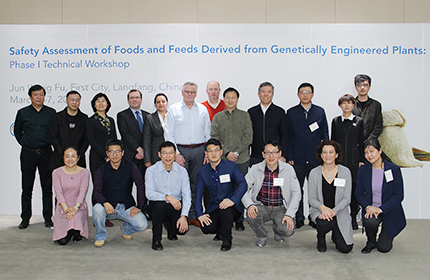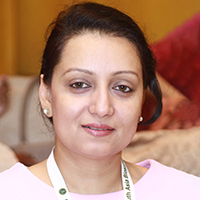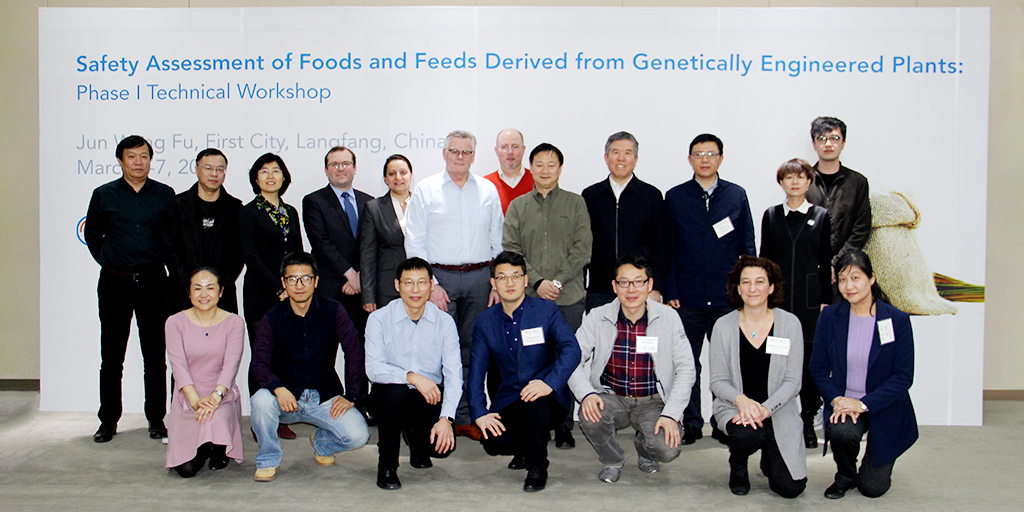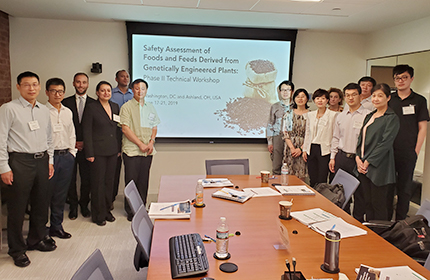Safety Assessment of Foods and Feeds Derived from Genetically Engineered Plants: Phase I Technical Workshop
-

March 5, 2019-March 7, 2019
Jun Wang Fu, First City
Langfang, China
The Agriculture & Food Systems Institute, in collaboration with ILSI Focal Point in China, conducted the first phase of our Technical Training Program on Safety Assessment of Foods and Feeds Derived from Genetically Engineered (GE) Plants on March 5-7, 2019 in Langfang, China. Aimed at providing Chinese public-sector scientists with in-depth information about the purpose, design, and conduct of studies used to inform safety assessments of foods and feeds derived from GE crops, Phase I of the program established a baseline understanding of the food safety assessment paradigm, toxicity and allergenicity testing, compositional assessment, and animal testing. Planned for June 2019, Phase II of the training will include laboratory tours and demonstrations of how tests are managed and conducted, as well as how data are collected and interpreted.
Participants were asked to complete the eLearning module “Concepts in the Safety Assessment of Novel Food and Feed” in advance of the Phase I workshop.
Speakers

Dr. Bhavneet Bajaj
Agriculture & Food Systems Institute
Dr. Mònica García-Alonso
Estel Consult, Ltd.
Dr. Donald MacKenzie
Institute for International Crop Improvement (IICI)
Dr. Jason Roper
Corteva AgrisciencesAgenda
Introduction of Key Concepts and Regulatory Landscape
Day 1 - March 5, 2019
Welcome and Overview of the Workshop
Dr. Bhavneet Bajaj, Agriculture & Food Systems Institute
Regulation of Genetically Engineered Foods and Livestock Feeds in China
Mr. Peilei Liu, Ministry of Agriculture and Rural Affairs
International Guidance for Assessing Foods and Feeds Derived from Genetically Engineered Plants
Dr. Donald MacKenzie, Institute for International Crop Improvement (IICI)
Key Concepts in the Risk Assessment of Genetically Engineered Crops
Dr. Monica Garcia-Alonso, Estel Consult, Ltd.
Question & Answer Session
Applying Problem Formulation to the Safety Assessment of Genetically Engineered Foods and Feeds
Dr. Monica Garcia-Alonso, Estel Consult, Ltd.
Breakout Exercise 1
Accessing Information: Useful Resources for Genetically Engineered Food/Feed Safety Assessment
Dr. Bhavneet Bajaj, Agriculture & Food Systems Institute
Breakout Exercise 2
Delving into Food and Feed Safety Assessments (I)
Day 2 - March 6, 2019
Recap and Questions from Day 1
Key Concepts in Genetically Engineered Food/Feed Assessment: Compositional Analyses
Dr. Monica Garcia-Alonso, Estel Consult, Ltd.
Accessing Crop Compositional Data to Inform Genetically Engineered Food/Feed Safety Assessment
Dr. Bhavneet Bajaj, Agriculture & Food Systems Institute
Breakout Exercise 3
Characterization of the Genetic Modification and the Novel Protein(s)
Dr. Donald MacKenzie, Institute for International Crop Improvement (IICI)
Breakout Exercise 4
Assessing Potential Toxicity of Proteins Expressed in Genetically Engineered Crops
Dr. Jason Roper, Corteva Agrisciences
Breakout Exercise 5
Delving into Food and Feed Safety Assessments (II)
Day 2 - March 7, 2019
Recap and Questions from Day 2
Dr. Monica Garcia-Alonso, Estel Consult, Ltd.
Understanding Animal Feeding Studies in the Context of Genetically Engineered Food/Feed Safety Assessments
Dr. Jason Roper, Corteva Agrisciences
Plenary Group Discussion
Assessing Potential Allergenicity
Dr. Donald MacKenzie, Institute for International Crop Improvement (IICI)
Breakout Exercise 6
Risk Communication
Dr. Donald MacKenzie, Institute for International Crop Improvement (IICI)
Feedback, Discussion, and Review
Dr. Monica Garcia-Alonso, Estel Consult, Ltd.
Preparing for the Phase II Workshop
Dr. Monica Garcia-Alonso, Estel Consult, Ltd.
Presentation of Completion Certificates & Workshop Closure
Phase II
Phase II of the workshop took place June 17-21, 2019 in Washington, DC and Ashland, OH. It focused on laboratory tours and demonstrations of how tests are managed and conducted, as well as how data are collected and interpreted. Phase II also included a review of the concepts from Phase I, with an additional focus on critical reading and review of study reports. Participants were asked to complete the eLearning module “Application of Problem Formulation for Food and Feed Safety Assessment” in advance of the Phase II workshop.


